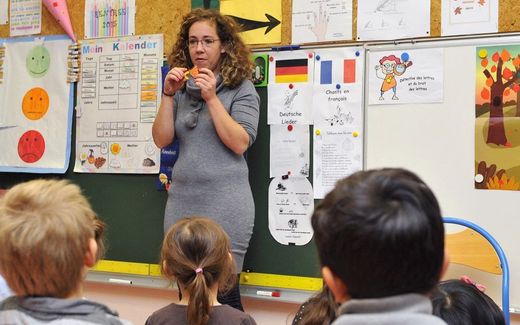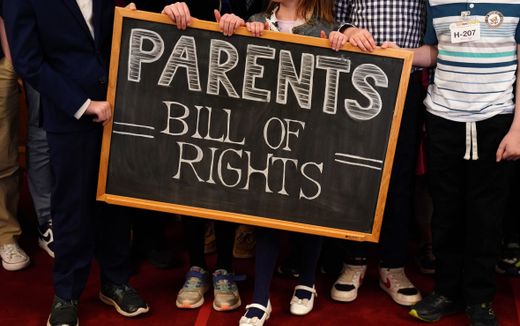CNE’s podcast: Banking problems for Swedish Christians; Religious Freedom group in European Parliament and; fewer Germans go to church on Christmas Eve

CNE's podcast.
European Union
NewsRound Europe is CNE’s news podcast. It has a bulletin with some remarkable news topics from the European continent. And at the end, we have a Question & Answer with a colleague about an article.
Jens Geiger will lead the German Christian schools from 2026
In 2026, Jens Geiger will be the new face of the German Association of Protestant Denominational Schools and Kindergartens (VEBS). The association’s board has presented him for the position of secretary general.
Geiger was the managing director of the Free Evangelical Schools in Stuttgart and Strohgäu, which has had 1,500 students since 2018. Before that, he was head of the tax department of a large textile company.
He is married and has four children.
The VEBS oversees 211 educational institutions (159 schools and 52 kindergartens) with 39,500 pupils and daycare children and more than 6,000 employees. Seven new schools and kindergartens opened in August this year, and more are set to open next autumn.
Geiger will be the successor of Professor Wolfgang Stock. Stock will retire in the summer of 2026 after nine years as VEBS Secretary General.
Banking problems for Swedish Christians
In Sweden, it is becoming increasingly difficult for smaller Christian organisations to open bank accounts. These can refer to local churches, mission groups, and prayer networks. Many have faced rejection from banks or had their accounts closed without a clear explanation. Världen Idag reports this.
Elia Källner, of the Whole Heart congregation in Gothenburg, describes their struggle to open a bank account despite efforts to meet various bank requirements. Similarly, other religious groups, such as the Messianic organisation Shalom, have encountered difficulties in maintaining banking relationships.
Some speculate that banks may hesitate to work with religious groups due to concerns about association with extremism or a lack of profit. This trend is seen as a threat to the freedom of religious and social organisations in Sweden, as it could make it nearly impossible to operate without access to essential banking services, especially services needed for gifts and donations.
EP restores Intergroup Religious Freedom
The European Parliament has re-established the Intergroup on Freedom of Religion or Belief to strengthen protection for individuals facing persecution for their faith. Co-chaired by the Dutch Bert-Jan Ruissen (ECR) and the Slowak Miriam Lexmann (EPP), the intergroup aims to raise awareness about global religious persecution, including issues in China, Belarus, Nigeria, and India. The European Times reports this.
It seeks to address the increasing violations of religious freedom, such as blasphemy laws in Nigeria and attacks on religious minorities in Pakistan and Iraq.
The intergroup will also push for the appointment of a new EU envoy for religious freedom, after the previous envoy’s mandate ended a few weeks ago, in November 2024.
Members from diverse political groups support the initiative, showing a broad commitment to religious freedom. The re-establishment of this intergroup comes at a critical time when violations are rising globally, underscoring the EU’s responsibility to protect this fundamental right both inside and outside Europe.
Every 6th German wants to go to Christmas service
One in six Germans plans to attend a church service on Christmas Eve. According to a survey by the Bundeswehr University in Munich, the percentage is 16 per cent.
This is similar to last year’s 15 per cent but lower than before the COVID-19 pandemic, when 24 per cent of people attended church on Christmas Eve. The Protestant press agency IDEA reported this.
When asked about the most important aspects of Christmas, topics such as faith, church, and religion ranked at 13 per cent.
More people prioritised “ecological sustainability” (19 per cent). The most important thing for respondents is spending time with loved ones (73 per cent), followed by peace and reflection (64 per cent) and enjoying good food and cookies (60 per cent).
The survey, which included over 1,200 Germans, shows a shift in Christmas priorities, with personal connections and well-being taking precedence over religious observance.
Malta health minister provokes euthanasia debate
Now the UK parliament has agreed the Assisted Dying Bill, also Malta should follow. Malta’s Health Minister Abela announced that the country should begin discussing doctor-assisted dying in the new year, he said according to the Times of Malta.
While the government will continue to improve palliative care, Abela highlighted that, in extreme cases with no hope of recovery, assisted dying may be appropriate.
His Labour Party had already committed to discussing euthanasia, with its 2022 election manifesto calling for a “mature discussion” on voluntary euthanasia for terminally ill patients. In an earlier interview, Abela shared his personal experience, expressing that even the best palliative care cannot always alleviate extreme suffering.
He believes that, in such cases, doctor-assisted suicide is justified. The UK Assisted Dying Bill, which passed its second reading recently, outlines a legal framework for terminally ill patients to seek assistance in dying, with strict safeguards and judicial approval.
For the Isle of Malta would such a bill be revolutionary, since the population is conservative in social issues and abortion is even forbidden at the moment.
Swiss court denies parents’ rights of about daughter’s transition
A Swiss Federal Supreme Court has denied parents the right to oppose their 17-year-old daughter’s gender transition. The court even threatened the parents with criminal charges unless they provided identity documents for her legal sex change.
Last year already, the teenager had been placed in state care after her parents objected to her transition, citing concerns about impulsive, irreversible decisions at a young age. The Christian Daily reports this.
The court upheld a local Geneva court ruling that ordered the parents to comply, stating that it would violate the separation of powers to interfere. The parents, supported by the legal group ADF International, argued their rights under Swiss legislation, international law, and human rights conventions to protect their daughter’s well-being. They refused to support her transition, fearing potential harm, and were subsequently separated from her.
The case has sparked wide attention, including a comment from Elon Musk, and the parents are now considering an appeal to the European Court of Human Rights in Strasbourg.
Related Articles












